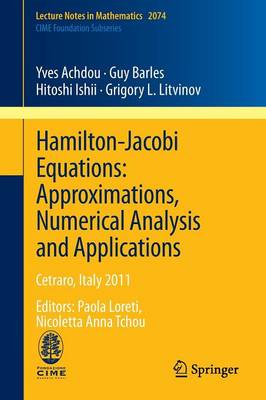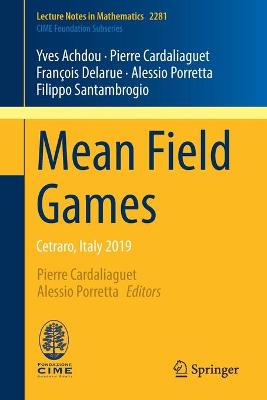Lecture Notes in Mathematics
2 primary works
Book 2074
Hamilton-Jacobi Equations: Approximations, Numerical Analysis and Applications
by Yves Achdou, Guy Barles, Hitoshi Ishii, and Grigory L. Litvinov
Book 2281
Mean Field Games
by Yves Achdou, Pierre Cardaliaguet, Francois Delarue, Alessio Porretta, and Filippo Santambrogio
This volume provides an introduction to the theory of Mean Field Games, suggested by J.-M. Lasry and P.-L. Lions in 2006 as a mean-field model for Nash equilibria in the strategic interaction of a large number of agents.
Besides giving an accessible presentation of the main features of mean-field game theory, the volume offers an overview of recent developments which explore several important directions: from partial differential equations to stochastic analysis, from the calculus of variations to modeling and aspects related to numerical methods. Arising from the CIME Summer School "Mean Field Games" held in Cetraro in 2019, this book collects together lecture notes prepared by Y. Achdou (with M. Laurière), P. Cardaliaguet, F. Delarue, A. Porretta and F. Santambrogio.
These notes will be valuable for researchers and advanced graduate students who wish to approach this theory and explore its connections with several different fields in mathematics.

